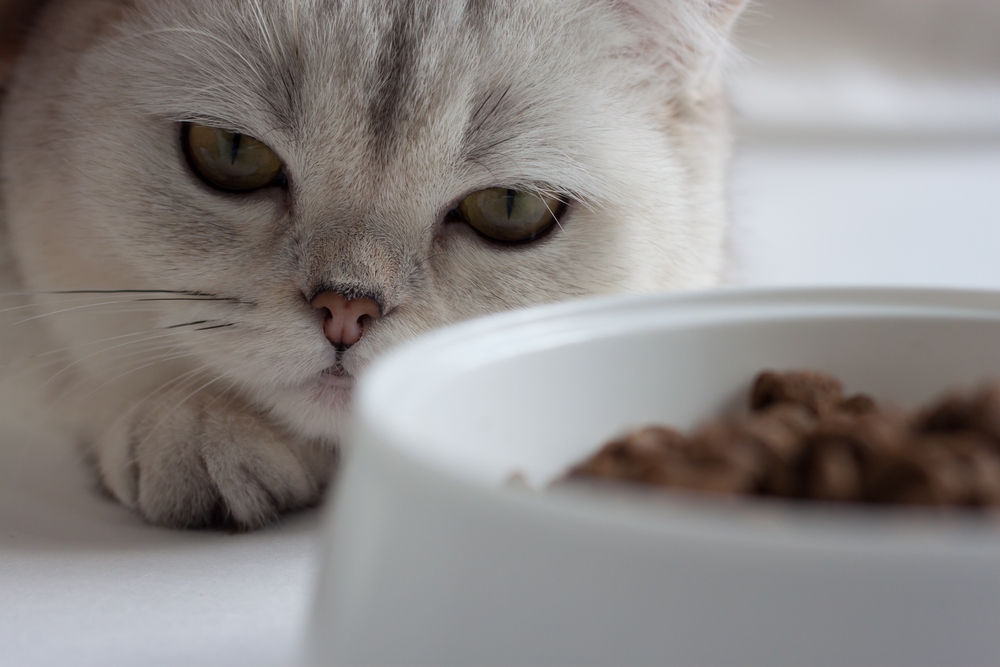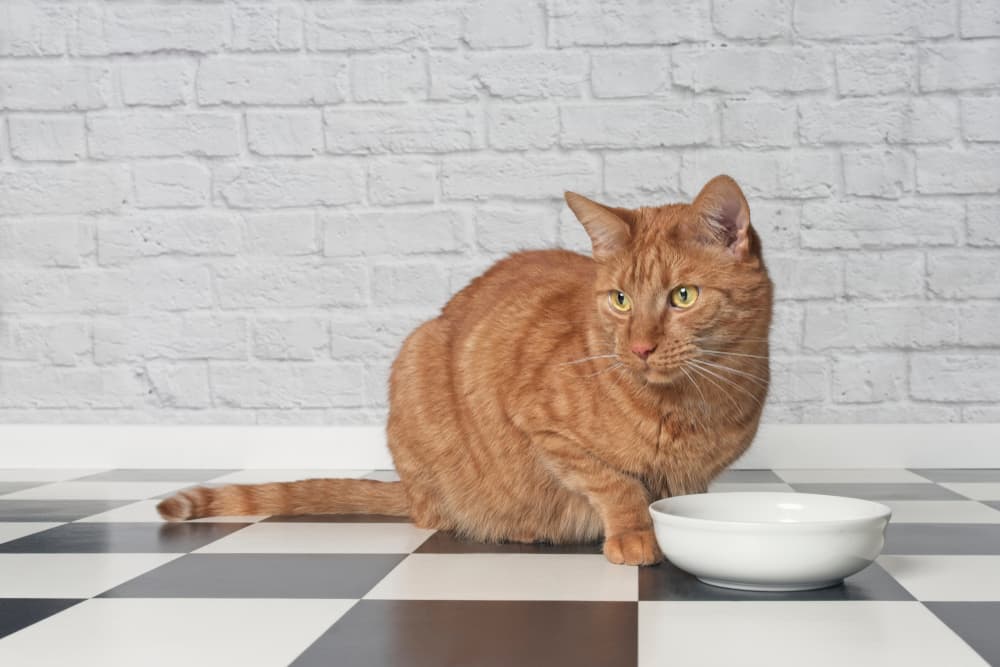All featured products are chosen at the discretion of the Vetstreet editorial team and do not reflect a direct endorsement by the author. However, Vetstreet may make a small affiliate commission if you click through and make a purchase.
For humans and cats alike, mealtime is a pretty big part of the day…some might say it’s the highlight! That’s why, as pet parents, we put so much effort into choosing the perfect combination of delicious and nutritious morsels to fill those food bowls. But what should you do if your cat won’t eat what’s on the menu?
When a cat won’t eat, it can be incredibly stressful for pet parents. Could this be a sign of some underlying illness, like chronic kidney disease? Or has your cat grown bored with what’s in their food bowl? Should you consider tempting their tastebuds by switching to a surefire palate-pleaser, like Meow Mix cat food?
There are many reasons why a cat might stop eating their food. And, while it’s important to get your cat back on track, the urgency of the situation depends on what’s causing your cat’s loss of appetite. To help you navigate this tricky topic, we talked to leading experts about reasons your cat won’t eat and how to help.
How Long Can Cats Go Without Food?
We all know that nutrition is essential to your cat’s overall health and wellness. But does that mean pet parents should worry the minute their kitty misses a meal?
According to Dr. Alejandro Caos, DVM, a veterinarian with The Vets, if your cat is not eating but acting normal, it’s okay to give it a day or two to see if the situation resolves and the cat’s appetite returns.
Cats can go a surprisingly long time without food — up to two weeks if they have access to water. However, lack of nutrition does take a toll on a cat’s body. After just three days without food, cats start to become malnourished.
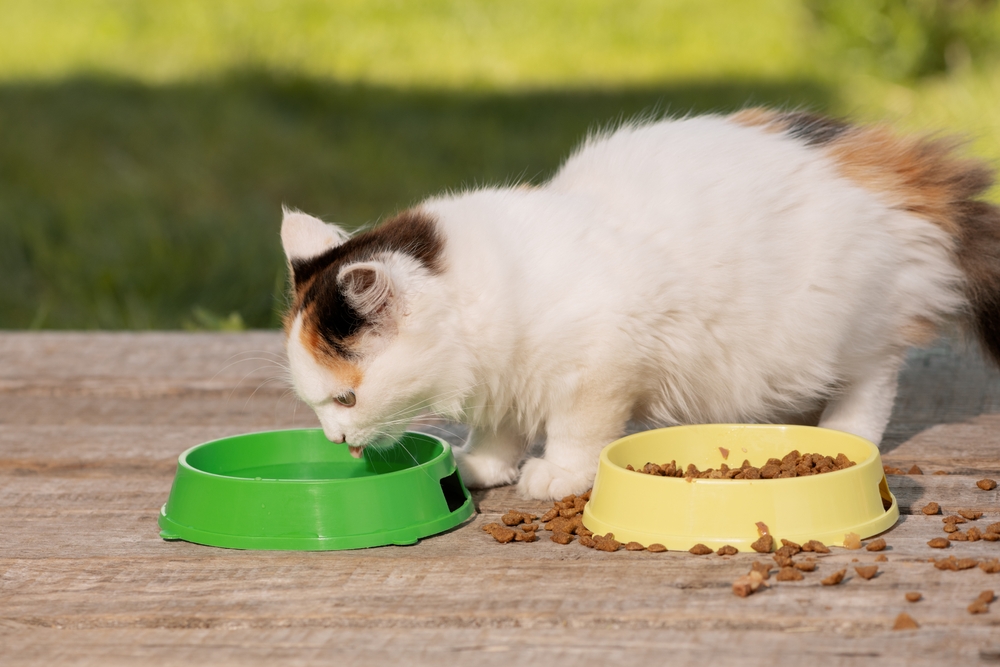
Cats can only survive three to four days without water. So, while one day of no eating or drinking is worrisome, more than that would definitely be cause for serious concern.
The wait-and-see approach also does not apply if a cat is not eating and displaying other symptoms of poor health or unusual behavior. These signs include sleeping a lot, losing weight, vomiting, experiencing a change in stools, whining more than usual, or acting generally “off.”
These all indicate that something more serious could be wrong with your cat. So it’s best to visit your veterinarian as soon as possible for a diagnosis or to rule out severe conditions that require prompt treatment.
Dr. Stacy Nelson, DVM, at Veterinary Emergency Group, agrees. “Cat owners should seek emergency medical attention when their cats are experiencing anorexia for greater than 48 hours along with symptoms like vomiting or lethargy,” she says.
Why Is My Cat Not Eating? 7 Common Reasons
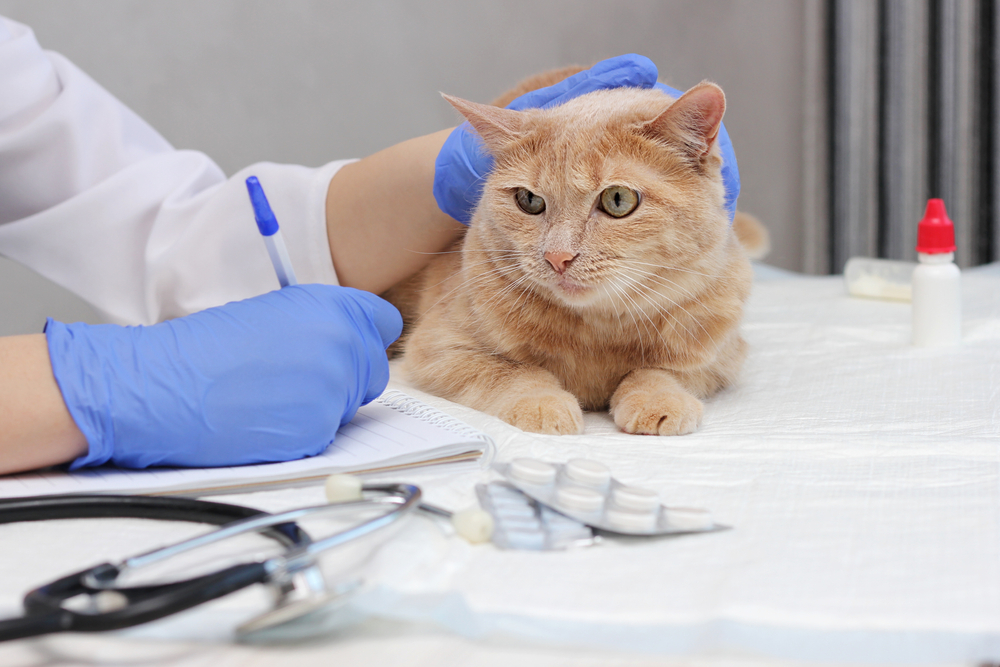
According to Caos, “Cats may have occasional fluctuations in their appetite, just like humans.” These could stem from a wide variety of causes — everything from changes in the weather, to stress, sickness, or a shift in routine could disrupt a cat’s regular feeding habits.
Therefore, it’s crucial to explore the underlying issue before attempting to find a solution. Here are some of the most common reasons a cat may stop eating.
Gastrointestinal issues
“Loss of appetite in cats is often linked to gastrointestinal problems such as gastritis (inflammation of the stomach lining), gastroenteritis (inflammation of the gastrointestinal tract), or pancreatitis (inflammation of the pancreas),” explains Caos. These conditions can cause discomfort and result in a decreased desire to eat.
An Underlying Illness or Disease
Chronic kidney disease is a prevalent condition in older cats. This, says Caos, can lead to a gradual loss of appetite as the kidneys fail to filter waste effectively. “Other symptoms may include increased thirst, weight loss, and changes in urination patterns,” he adds. Other conditions like asthma, diabetes, hyperthyroidism, and conjunctivitis may also impact a cat’s appetite. Prompt diagnosis and appropriate management, including dietary adjustments, can help improve the quality of life for cats with this condition.
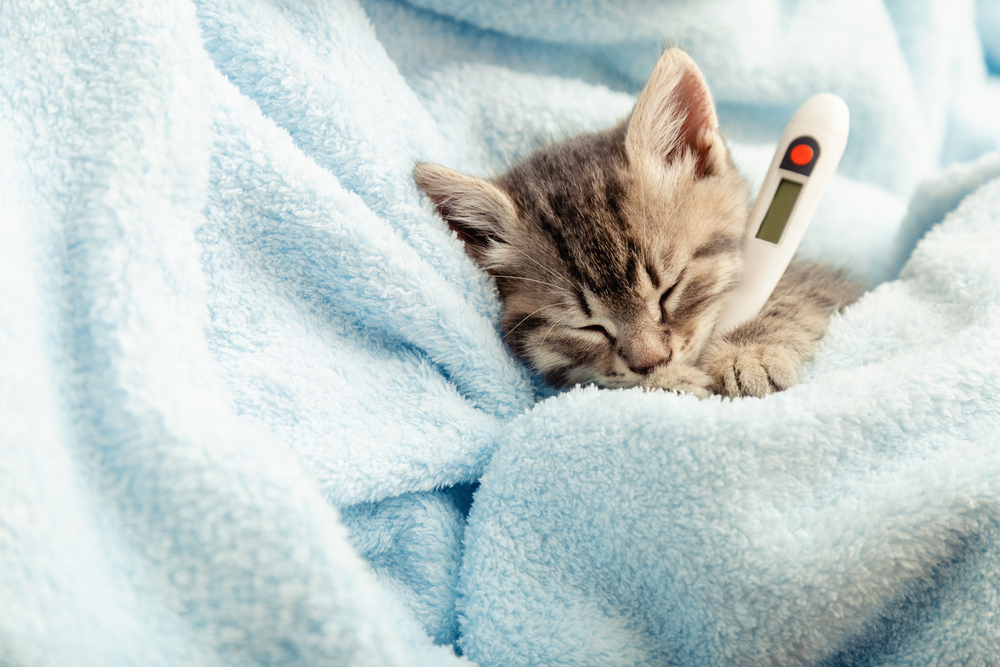
Age
Pet parents may notice that as a cat gets older, their appetite goes down a bit. “As cats age, their sense of smell tends to diminish, potentially leading to reduced interest in their food,” explains Samantha Bell, a cat expert at Best Friends Animal Society.
Dental Pain
Dental problems, such as gum disease or tooth pain, can make eating uncomfortable for cats. “If your cat is experiencing dental issues, they may eat less or avoid certain types of food,” Caos explains. This can especially be an issue for older cats.
Food Preferences
Just like humans, cats who are picky eaters may simply prefer certain flavors, textures, or brands of food over others. “If they are given a new type of food or if there have been changes in their diet, they may eat less until they adjust to the new options,” says Caos. Some cats may stop eating altogether to let you know they don’t care for what’s in their food bowl.
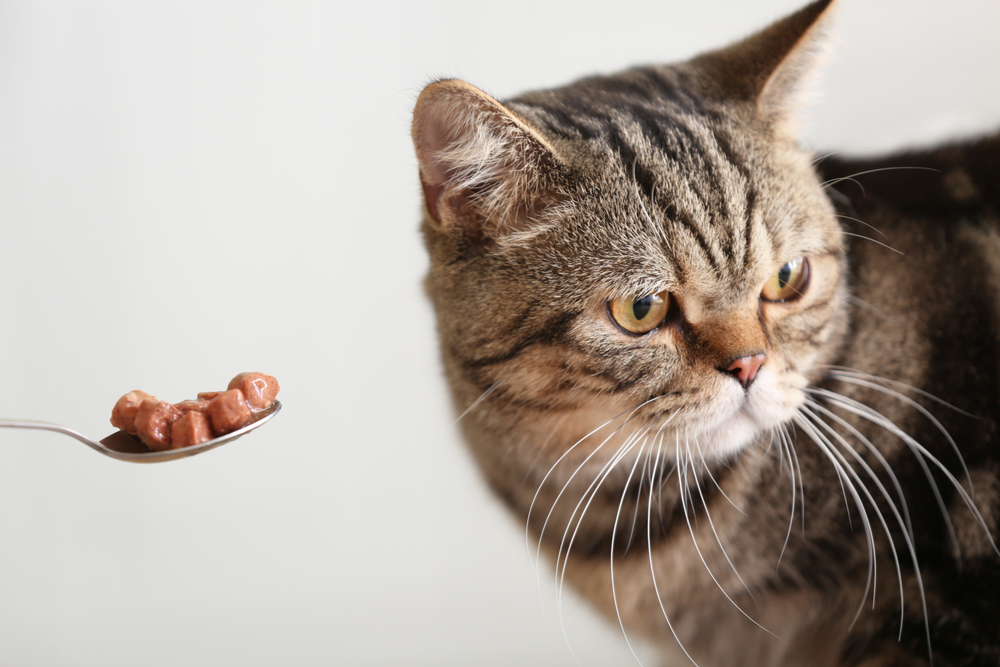
Environmental Factors
Changes in the environment, such as a new location, new pets in the house, or changes in routine, can sometimes cause stress or anxiety in cats. This, explains Caos, may temporarily affect their appetite while adjusting to a new normal or working through a stressful life transition.
Certain Medications or Recent Vaccinations
As with humans, certain medications can affect whether or not a cat feels like eating. Getting a new vaccination may also temporarily lead to changes in food consumption. Ask your veterinarian if loss of appetite is a side effect of any medications your cat takes or shots they receive. If so, put together a plan ahead of time to help a cat keep their appetite up.
Cat Not Eating? How to Help
Once you’ve noticed a loss of appetite in your pet, there are some things you can try that act as an appetite stimulant for cats. Again, this is only if there are no other alarming signs are present, such as vomiting, diarrhea, or not drinking.
If your cat won’t eat, but is acting normal, here are some expert-recommended tips you can try to encourage them to eat.
Monitor the Situation
First of all, don’t panic, says Caos. Keep an eye on your cat’s eating habits for a day or two and see if your cat gets interested in their food. “Sometimes, temporary changes in appetite can resolve on their own,” Caos explains.
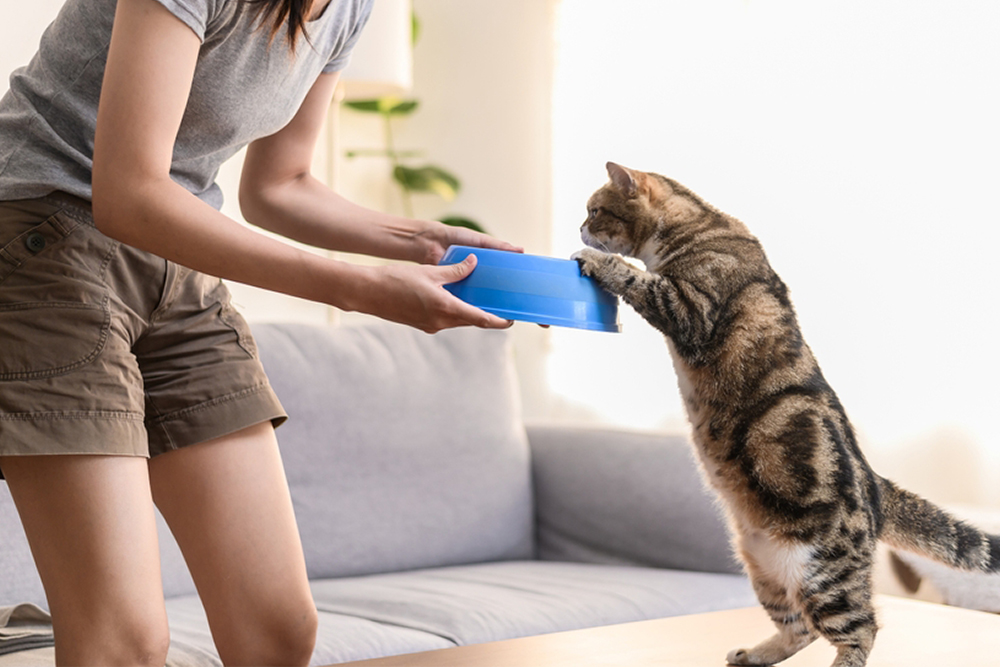
Offer a Variety of Foods
“Provide a range of food options to see if your cat shows interest in any particular type,” says Caos. For example, if you’re looking for the best food for picky cats, you can try changing things up and introducing your cat to a highly-palatable food option.
Sometimes, switching to a food with an appealing texture or tantalizing flavor profile will do the trick. For example, Meow Mix wet and dry cat food formulas are renowned for textures and flavors cats love. If your cat is a kibble eater, consider trying Meow Mix Original Choice Kibble or Meow Mix Tender Centers cat food. Or mix some Meow Mix Tenders in Sauce wet cat food in with their kibble for an extra-irresistible flavor boost. “You can also try warming your cat’s food slightly to enhance its aroma,” suggests Caos.
Engage Their Playful Side
If your cat wants nothing to do with their food bowl, you could also try shaking things up by sneaking some cat food into a cat puzzle toy. This may catch your cat’s interest and stimulate them, and as the food falls out of the toy, they just might take a bite. Another option is to try giving your cat smaller portions of food throughout the day and seeing if this inspires them to take a few bites here and there, which can add up to a fuller meal.
Ensure a Calm Feeding Environment
Create a quiet and stress-free environment during mealtimes. “Some cats prefer solitude while eating, so provide a separate, quiet area where they can enjoy their food undisturbed,” Caos explains. This can help to calm a cat who is going through a bout of anxiety or experiencing some environmental stressors.
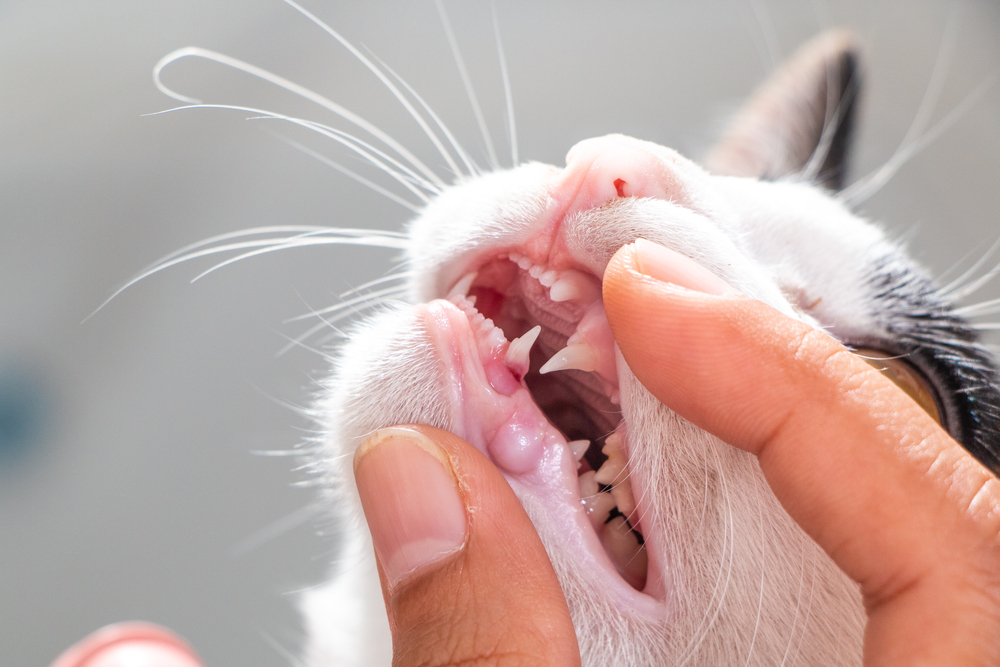
Check for Dental Issues
Examine your cat’s mouth for any signs of dental problems, such as redness, swelling, or dental tartar. If you notice any issues, it’s best to consult a veterinarian for a thorough examination. Getting dental pain taken care of may be needed to increase a cat’s appetite.
Consult a Veterinarian
“If your cat’s decreased appetite persists for more than a couple of days, or if you notice other concerning symptoms such as weight loss, lethargy, or vomiting, it is best to seek veterinary attention,” explains Caos.
A veterinarian can conduct a thorough examination, perform diagnostic tests if necessary, and provide appropriate guidance and treatment based on the underlying cause. In addition, says Dr. Dwight Alleyne, DVM, of Ready, Vet, Go, “Your veterinarian may have some additional tips and tricks, such as offering pungent canned foods, canned human meats like tuna, salmon, and chicken, meat-based baby foods, specific treats, as well as using veterinarian-prescribed appetite stimulants.”
The author received compensation from Vetstreet for their services in writing this article.
